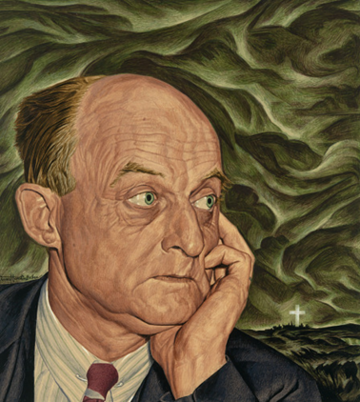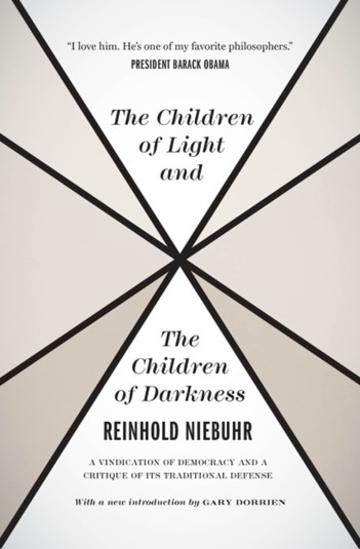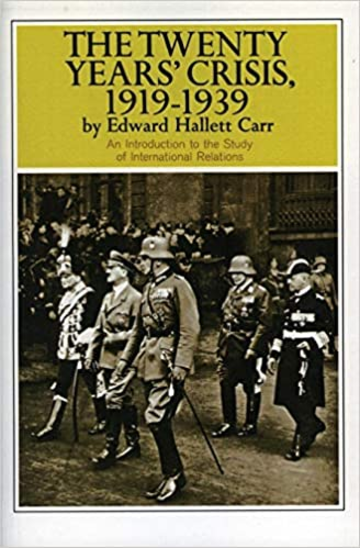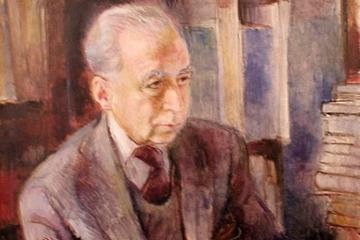The Myth of Reinhold Niebuhr’s Political Realism
The reception of American Protestant theologian and public intellectual Reinhold Niebuhr’s (1892–1971) international political thought is problematic for a theologically minded intellectual historian to say the least. Niebuhr’s ideas have received the most sustained attention in International Relations scholarship, where there is a near universal consensus that his thought can be codified within the parameters of ‘Realism’. Realism can generally be understood as a theory of politics that places the power and self-interest of the state as the most important factor in any analysis of international politics. Realists generally contend that (whether we like it or not) human beings are self-interested and flawed, unable to sustain political communities based around ‘higher’ moral norms. They often claim that ‘history’ vindicates such an assessment. However, these readings oversimplify Niebuhr’s esoteric political thought and ignore the rich theological underpinnings of his vision of international politics.

Portrait of Reinhold Niebuhr in 1948 by Ernest Hamlin Baker in the National Portrait Gallery.
Interpreting Niebuhr as a Realist is a somewhat peculiar claim considering his unwavering theological commitment to love, justice and the rather idealistic vision of ‘World Community’ which he elaborated on extensively in the final chapter of one of his most famous books The Children of Light and the Children of Darkness (1944). Realism, as described, was the opposite of this. It was a brand of politics that emphasised the inevitability of tragedy, and the futility of any positive vision of international political cooperation beyond a minimalist balance of power among the great powers. Niebuhr himself rejected this tag, claiming in The Irony of American History (1955) that his vision of international politics was ‘more sober than of the realists and idealists’. This was because ‘egotism (of Realism) was not the proper cure for an abstract and pretentious idealism’. This begs the question: why is Niebuhr understood as a Realist, and how can one read him differently?

The title page of the new 2011 edition of Reinhold Niebuhr’s The Children of Light and the Children of Darkness with a foreword by Gary Dorrien, University of Chicago Press.
The canonisation of Niebuhr within the Realist scheme began with English historian and international relations theorist E.H. Carr (1892 – 1982) in his seminal work The Twenty Years Crisis (1939). This book is regarded as one of the foundational texts of Realism, and the very discipline of academic International Relations. Carr, one of the earliest proponents of ‘Realism’, cited Niebuhr as a key inspiration of this form of thought praising Niebuhr’s ‘cynical clear-sightedness’ about the ‘realities of politics’. Niebuhr is extensively referenced (seven times) in Carr’s text, and given a special tribute in the Preface; clearly Carr was a great admirer of some of Niebuhr’s insights. But a closer look at these references shows Carr’s incredibly a-theological reading of Niebuhr. The only text Carr drew from was Niebuhr’s popular book Moral Man and Immoral Society (1932). While this was the book that propelled Niebuhr into international, stardom, it was an intentionally simplified text not particularly concerned with the theological underpinnings of his thought.

The title page of the 1964 edition of E. H Carr’s The Twenty Year’s Crisis.
Indeed, in Moral Man and Immoral Society Niebuhr was deeply critical of Woodrow Wilson and the League of Nations. He famously claimed that ‘while the realities of the Treaty of Versailles were dictated by Clemenceau, Wilson supplied the garnish of sentiment and idealism’. When read in isolation, of course this looks like textbook ‘Realist’ wisdom. However, a deeper contextualist reading of Niebuhr’s broader canon would suggest his views were far more nuanced than Carr suggested. Indeed, like Carr, Niebuhr argued it was naïve to believe war could simply be avoided by the construction of supranational institutions. However, he did not believe one should give up on building a more moral world order because it was difficult. For Niebuhr, that was morally unacceptable, a betrayal of the Jewish and Christian spirit of ‘prophetic’ justice. A deeper and broader reading of Niebuhr’s corpus of work, rather than a simple rehashing of Carr’s line, would do a great deal to revive this more sophisticated outlook on international politics Niebuhr held.
Hans Morgenthau, arguably the most recognisable Realist of the twentieth century, remarked that ‘Niebuhr and I come out practically the same on politics… I just don’t need all that metaphysics to get to where we both get’. But an intellectual historian interested in Niebuhr’s work should realise that a recovery of ‘all that metaphysics’ is exactly what we need to gain a more historical understanding of his thought. A reading of Niebuhr’s theology indicates how he really felt about the realist school of thought, as well as leading us to uncover his more positive alternative to it. Niebuhr remarked in one of his most pertinent theological essays ‘Moral Meaning and Moral Ambiguity’ (1953) that his vision of politics was governed by ‘Christian eschatology (which) looks forward to an ‘end’ of history in which the conditions of nature-history are transfigured but not annulled’.

Portrait of Hans Morgenthau from the front cover of Michael C. Williams, ed., Realism Reconsidered: The Legacy of Hans J. Morgenthau (2008).
Niebuhr was reluctant to describe practically what this vision of world politics ‘transfigured but not annulled’ looked like. This came down to his theological conviction that history was a fundamentally mysterious and unknowable phenomenon, held together by God’s presence in the cosmos. This was a perspective Niebuhr claimed he obtained from his reading of twentieth century German-Jewish philosophers Martin Buber (1878–1965) and Franz Rosenzweig (1886–1929). He described this in a letter to Paul Tillich as his ‘Hebraic mode of apprehending reality’. Contrary to the approach of the self-declared Realists, Niebuhr rejected the idea that we could find any patterns in history—writing in a 1955 theological tract that ‘every philosophical effort to understand history is based on the assumption that in some depth of reality a pattern may be found in what which seems contingent and unforeseen… as a servant of the hidden logic which underlies and informs all things’.

Photo of Martin Buber by Alfred Eisenstaedt.
It can perhaps be frustrating to resign to the fact that Niebuhr’s vision of international politics was non doctrinal. Niebuhr’s politics was a clear disposition towards the problems of world order based on the biblical command to pursue justice above all else—rather than a systematic abstract theory. It was an appreciation of the mysteries of history above the human inclination to make sense of it all. For Niebuhr ‘there was no Christian economic or political system’, there was simply a ‘Christian attitude to all systems of justice. It consists of a critical attitude to all claims of all systems and schemes… whether they will contribute to justice in a concrete situation’. It is this disposition that a more theologically sensitive historian should search for in Niebuhr’s rich thought.
Matthew Andersen read for the MSt in Intellectual History at Christ Church, Oxford, 2021–22. This blog is based on his MSt thesis: ‘From Christian Realist to Hebraic Prophetic: the Theological Underpinnings of Reinhold Niebuhr’s Vision of International Politics’.


